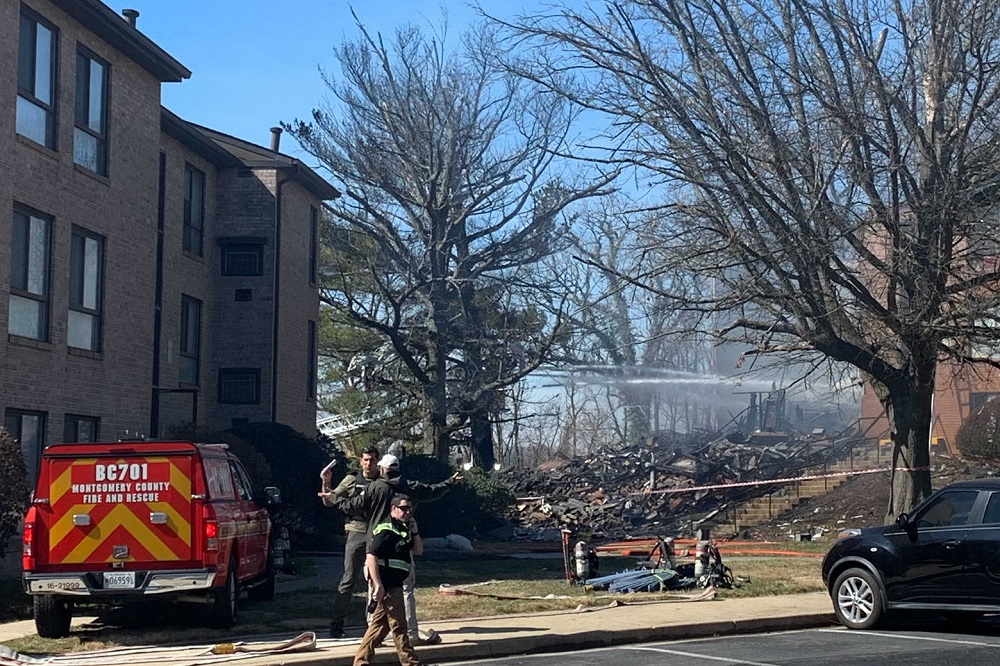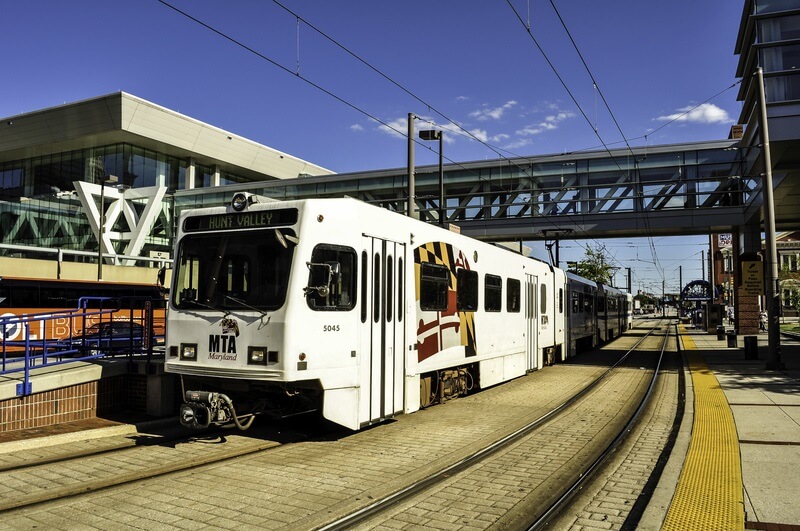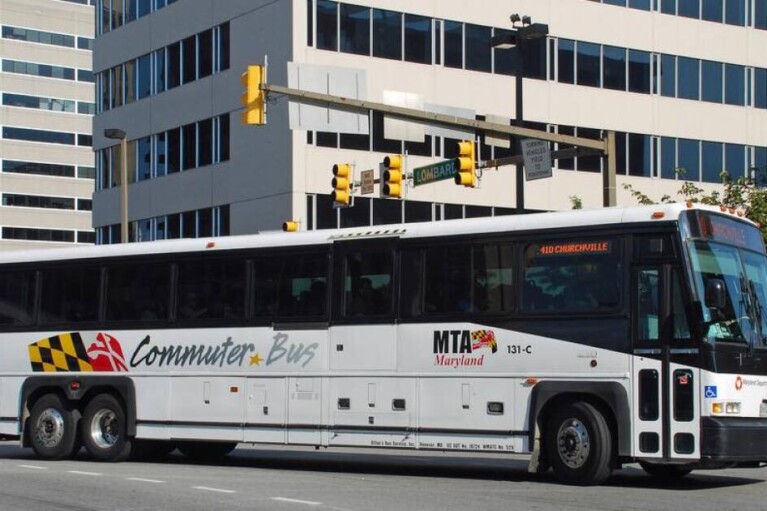Opinion: How ‘Accidental’ Was Silver Spring Apartment Explosion Really?

By Steven Sellers Lapham
The writer, a resident of Gaithersburg, is author of the Patch.com series “Living on Cuckoo Court.”
A massive explosion at Friendly Garden Apartments in Silver Spring on March 3 “will be ruled accidental,” officials said, “after investigators concluded that a maintenance worker mistakenly cut through a gas line in a basement utility room while addressing a plumbing problem.” Montgomery County Executive Marc Elrich “questioned what kind of training the apartment complex’s management required.” Fire Chief Scott Goldstein explained what could have sparked the blast: “Could be a pilot light. Could be a cigarette. Could be the simple flick of a light switch. Could be a motorized tool.” So reported The Washington Post.
What that article did not report were the names of the three entities most responsible for the safety of the residents, listed here in no particular order:
The U.S. Department of Housing and Urban Development. “Friendly Gardens – Affordable Community is a HUD Apartment,” according to www.publichousing.com. HUD has been outsourcing the management of its public housing stock at least since Ronald Reagan was president.
Friends Non-Profit Housing Inc., which has neither a website nor a phone number that I can find, is the owner of the apartments at 2405 Lyttonsville Road, according to county records.
ResidentialONE is the property management company that manages Friendly Gardens. ResidentialONE is a for-profit corporation that manages “close to 10,000 units” in Maryland, Virginia and Washington, D.C., according to its website.
These facts lead to some interesting questions.
Do these entities approve “maintenance workers” of any sort to enter a utility room and cut pipes here and there? Does the management company?
Was the unnamed “maintenance worker” who cut the 1.5-inch gas pipe a plumber? A plumber is a licensed professional who knows how to distinguish between a gas line, a water line and a sewer line.
Was skimping on hiring competent professionals a factor in this disaster? And did that help balance anybody’s budget? Did it leave money in anybody’s pocket? Is it standard business practice?
What we are looking at seems to fit a nationwide pattern.
The condo association that failed to prevent the collapse of a building in Florida invited members to vote on whether repairs were necessary. Agencies and companies enabled a gas line to be cut at the Friendly Garden HUD apartments in Maryland. These exemplify the quasi-governmental, nominally nonprofit institutions and for-profit corporations enabled (by 1970-era state and federal laws) to suck money from residents while mismanaging property and neglecting infrastructure.
These entities lack the accountability and transparency of traditional village or city governments. They maintain control via the powerful real estate and debt attorney lobbies stationed in our state capitals. Meanwhile, state and local governments shuck their sworn responsibility to ensure the health and safety of their constituents.
“For several decades, local governments have eagerly delegated construction of roads, dams, and stormwater drainage systems to private developers. Even worse, they’ve pawned off maintenance responsibilities to ineffective special district boards and volunteer-led homeowners’ associations,” writes Deborah Goonan, administrator of IndependentAmericanCommunities.com, a housing consumer education blog reporting on the nationwide problem of homeowners’ associations’ “corruption, dysfunction and abuse.” Mainstream media almost never do such reporting, perhaps because real estate advertising is vital to the survival of the press these days.
Thus, the citizenry is left with decay, disasters and a morass of unaccountability. Ethnic- and language-minorities, and low-income residents, suffer the most, and most of the suffering goes unnoticed by the rest of society – until there is a disaster of one sort or another.
There’s great resistance to revealing the truth about how and why neighborhoods decline and infrastructure falls apart in America.
The explosion at Friendly Gardens was not merely an accident.
Further investigation is needed to untangle who among government servants, property owners and property managers (not just the maintenance worker) might have been acting with incompetence, negligence, greed or some dangerous mix of these features, as a gas service line was cut in an apartment building full of people.




 Creative Commons Attribution
Creative Commons Attribution